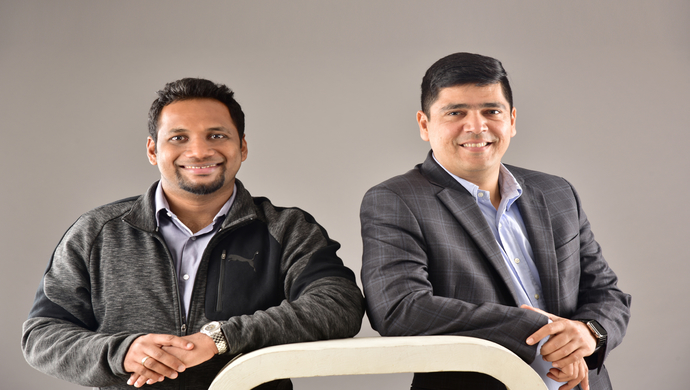Also, Google’s workers want nothing to do with China, China’s authorities announce a broad crackdown on Didi’s safety violation

Google’s employees petition the company to stop making China happen [Bloomberg]
A signed public letter directed to Google was sent by the company’s employees to plead Google to abandon its plan to comeback to China.
The plan to reenter the censorship-heavy country was known as Project Dragonfly, a project that seeks to enable state surveillance at a time when the Chinese government is expanding controls over the population first emerged in August under CEO Sundar Pichai’s leadership.
The petition was signed by software engineers and researchers who called on the company’s commitment to transparency and to provide clear communication.
“We refuse to build technologies that aid the powerful in oppressing the vulnerable, wherever they may be,” the Google workers wrote in the letter. “Dragonfly in China would establish a dangerous precedent, one that would make it harder for Google to deny other countries similar concessions.”
AI-based risk management SaaS CloudSEK secures US$1.9M [Press Release]
An information security risk management SaaS startup in Bengaluru CloudSEK announced that it has raised a Pre-Series A of ₹14 Crores (US$1.9 million) funding by Exfinity Venture Partners and StartupXseed.
CloudSEK plans on evolving its flagship product XVigil, a unified risk management platform using the funding and to expand its footprints in India and South East Asia targeting the pharmaceuticals, petrochemicals, and retail industry.
CloudSEK was founded by Rahul Sasi in 2015, headquartered in Singapore with an operational center in Bengaluru, India. It provides a cybersecurity platform powered by machine learning. Its products include X-Vigil-CloudSEK’s SaaS-based flagship, and Cloudmon that tracks network and application related security issues associated with the client.
Kerala’s restaurant owners to boycott food delivery apps [Quartz]
A war has been happening between restaurant owners and food delivery applications in southern India in the state of Kerala. Starting Saturday, December 1, 2018, a bunch of restaurants have stated that they will not accept orders from the likes of Zomato, Swiggy, Uber Eats, and Foodpanda.
Members of the Kerala Hotel and Restaurant Association (KHRA) has decided to boycott the aggregators because they are worried that food delivery will have similar effects on them the way Ola and Uber did to drivers: initially help widen their reach but eventually kill their earnings, especially through heavy discounting.
“Uber Eats and Swiggy take a 33% commission and Zomato charges around 22%,” said Suhaib V, owner of Kochi-based Ceylon Bake House in a statement reported by Quartz.
Also Read: Former Skype co-founder’s online lending startup Oriente raises US$105M funding
However, analysts are skeptical that boycott is the solution. “Aggressive discounting will only hurt restaurants if they do not make up on volumes and if they are not able to ensure stickiness for their loyal customers,” said Anindya Ghosh, the Heinz Riehl professor of business at New York University.
With most delivery apps pay for discounting out of their own pockets, supposedly the same thing happened to drivers in Ola and Grab case wouldn’t happen to restaurant owners.
The real problem lies potentially in how food-delivery sites can, in the long run, switch customer loyalty from restaurants to the platform itself. A Swiggy user, for instance, may go for the cheapest or closest option rather than picking a restaurant deliberately.
Right now the cloud kitchen wave, wherein a company prepares, packages, and delivers food based on online or mobile orders without operating a whole outlet, is already creating direct competition for restaurants.
To counter the food-delivery firms, KHRA is even considering launching its own app, but analysts said it’s not a good idea.
Grab users can now order a cleaning service from Singapore-based Helpling [Press Release]
Online home maintenance service marketplace Helpling has joined Grab Ventures Velocity Program in a mission to scale up its service in Singapore.
Grab Ventures Velocity is a 16-week program that aims to help startups by giving them access to resources, capabilities, and networks of Grab and its program partners.
With Helpling joining the program, its home cleaning service is now available to book via Grab app for Singapore for the next six weeks.
China’s Ministry of Transport to fine Didi for safety violation [Reuters]
Following the separate incidents in which two women passengers of Chinese ride-hailing app Didi became victims, China’s Ministry of Transport announced a broad crackdown on the market-leader Didi Chuxing.
Didi has violated multiple safety rules, presenting a “major safety hazard” such as failing to properly flag high-risk drivers and improperly handling deposits, said the official statement released in China’s Ministry of Transport’s social media account.
Although accounting for 90 per cent of China’s ride-hailing market, but there’s a loose end in the company’s illegal hiring on drivers. It results in the authorities fining Didi’s executives and legal representatives for an undisclosed amount of money.
Didi’s business has already suffered from the suspension of its carpooling service Didi Hitch, the one that the two victims used. Authorities said on Wednesday that the suspension of Didi Hitch would continue indefinitely.
Also Read: Indonesia to regulate digital gold transaction by the end of the year
However, Didi CEO Cheng Wei remains optimistic to try to protect riders and drivers, he said in a statement. As an effort to regain customer’s trust, Didi has said it will expand its in-house customer service team to 8000 people from 5000.
–
The post Today’s top tech news, November 28: Kerala’s restaurant owners to boycott food delivery apps appeared first on e27.